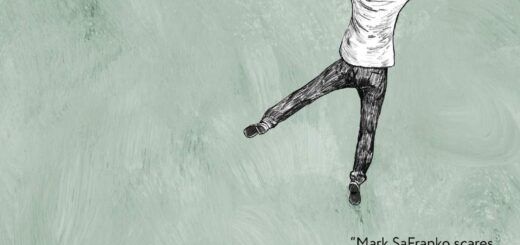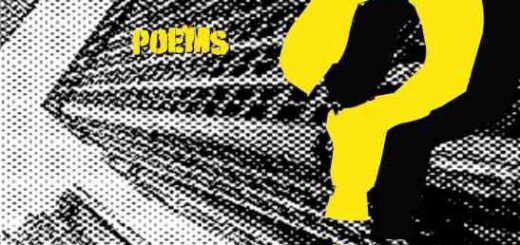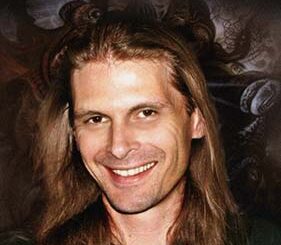Interview with author: Mark SaFranko
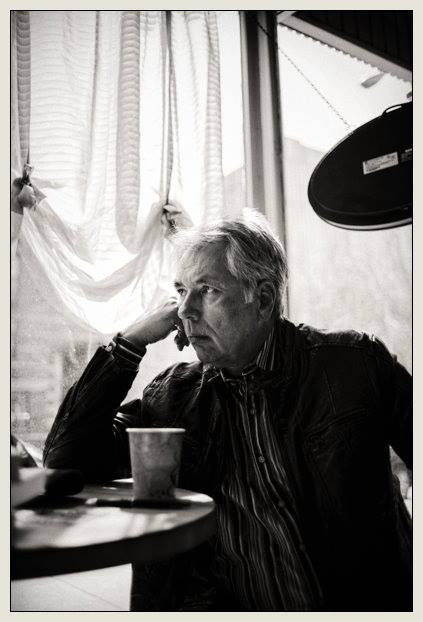
Interview with author: Mark SaFranko
The true story of a fiction writer
Interviewer: Ujjwal Dey
Author being interviewed: Mark SaFranko
Date: 09-Sept-2009
Issue 01, Vol 02 Freedom Fiction
Mark SaFranko is an author of novels and short stories, known for his crime and confessional style and hard-hitting social satire. He is also a playwright, poet, among past occupations of journalism and ghost-writing. He also enjoys painting and creating and performing music, and has been an actor as well.
His range of skills doesn’t stop at writing and the arts, for he has worked a gamut of occupations to sustain his passion for writing in his initial years.
Mark is critically acclaimed for his fiction novels with a growing fan following in Europe and especially in U.K. where he contributed to a blog for Guardian Newspaper (UK) in the ‘Arts and Entertainment’ section of their website. His plays have been performed in U.S.A. and in Europe including at Cork Arts Theatre and Derry Playhouse. More than 50 of his short stories have been published in several magazines.
His fiction stories explore themes in psychology, relationships, crime, lust, violence, urban pathos and suburban drear.
Official website: http://www.marksafranko.com/
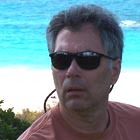
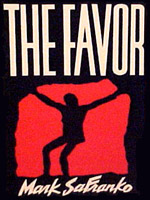
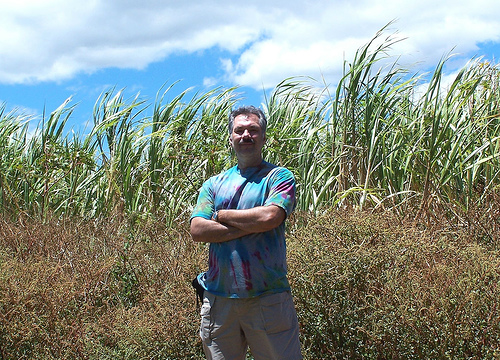
His powerful character named Max Zajack (from the novel “Hating Olivia”) returned in his novel “Lounge Lizard”. The raw force of SaFranko’s words and scenes amazes the reader and it contrasts with the fact that they are so realistic in their premise with believable characters. His publishers at Murder Slim Press have also collected some of his short stories under a common theme released in December 2008 with the title of “Loners”.
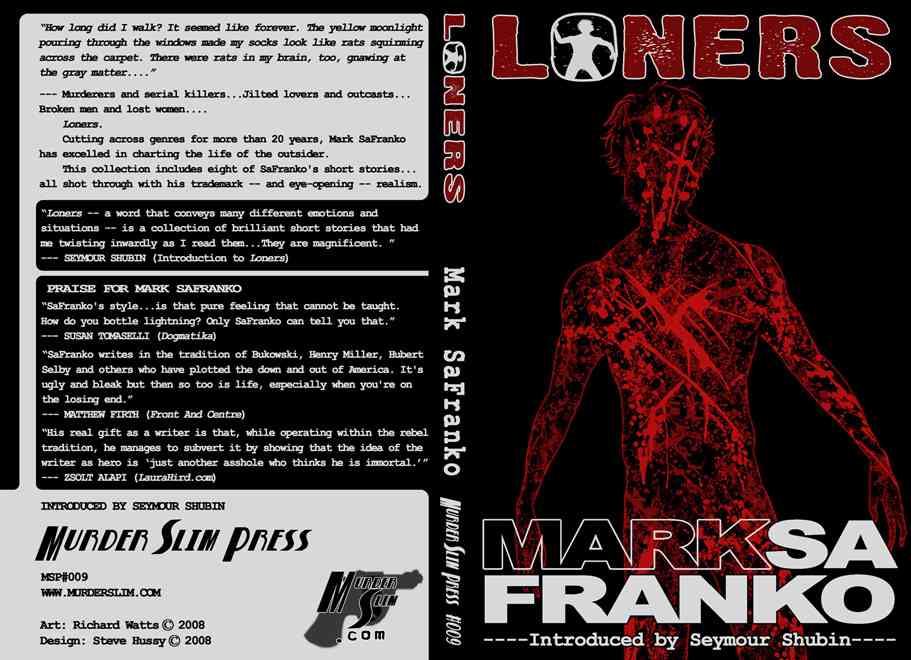
His short stories are skilfully crafted; recognised for its their unique style and abundant in its their range, quality and quantity. Here are a few mentions:
- “Rescuing Ravel” – Frank O’Connor Award for Short Fiction, 2005 – descant, Volume 44 (2005)
- “The Pursuit of the Nonexistent” – Ellery Queen’s Mystery Magazine, Vol. 117, No.5 (2001)
- “The Man In Unit 24” – Cited as a “Distinguished Mystery Story” of 1999 in The Best American Mystery Stories, 2000 – Hawai’i Review, Issue 52 (1999)
- “Acts of Revenge” – Ellery Queen’s Mystery Magazine, Vol. 121, No. 3 (2003)
- “Prisoners in Paradise” – Nominated for Pushcart Prize, 2000 – The Green Hills
- Literary Lantern, Number 10 (1999)
Some of his older fiction is available online as well:
- “The Laughter of the Clown”
- “Surkow’s Fantasy” at Dogmatika (2006)
- About his writing at “The Loose Canon” at Toro Magazine
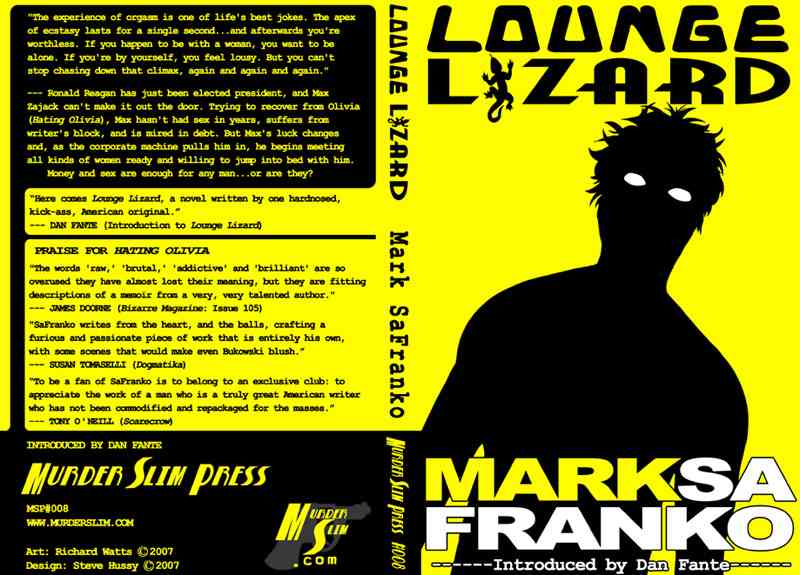
A novelist with more experiences than a man could pen down in a lifetime, his works have been successful in both first-person and third person narrative. Mark SaFranko has been generous to spare his time to indulge us in our detailed
interview. We have touched subjects that would appease our readers, both aspiring authors and fans. His dedication to his craft and the support he has offered to those who seek guidance or wisdom has greatly indebted us and also set us free to pursue with similar passion whatever our inner artist pleads us to accomplish.
Ujjwal Dey (Dey): Hello Mark, and thank you for giving us the opportunity to have this interview with you.
You are a man of many talents – with a knowledge of so many vocations and the subsequent skills acquired – how much of it helps you in crafting a tale?
Mark SaFranko (Mark): You’re quite welcome. I don’t think there’s any question that having a great deal of experience in many different areas of life helps a novelist. The problem of course is that at some point all of the writer’s energy has to go into his art. I like something Charles Willeford once said, and I’m paraphrasing: a writer spends his youth gathering experience, then lives a very boring life writing about it. I think there’s a lot of truth in that.
Dey: In the same context, would you say writing was always your preferred occupation, or even the most beloved one?
Mark: The first thing I wanted to be as a young boy was a musician. It’s a desire that’s never left me. More accurately, a composer, and I still write songs and instrumental music. But before I realized I wanted to be a writer in my late teens, I thought I wanted to be a lawyer. Taking the entrance exam for law school changed all that, because I realized I didn’t have an iota of the skill required. But I’d actually been mistaken all along. Instead of sitting in a courtroom, I was really interested in character — the deviant mind, including my own. But yes, writing for me in whatever medium is the supreme thing.
Dey: Even within the occupation of a writer, you have held various roles in different moulds – short stories, novels, writing plays, ghost-writing, reporter/ journalist, etc. And then there is the fiction/ non-fiction aspect as well. Which would you say is most satisfying for you as a writer and why?
Mark: When you are writing a novel or short story, you are God in your own little universe. No one can dictate what you should do, and for the most part it stays that way save for when an editor requests a minor change. With the stage plays, it’s very different. There is no substitute for seeing your creation brought to life in front of a live audience. But unless you’re incredibly fortunate, you’re no longer God. You have to appease and collaborate with producers, directors, actors, audiences. Everyone has his or her hand in your creation. By the time the process is finished, you sometimes wonder whether there’s anything left of the play or you. And whose it is. But the fictional universe is created for you alone, for the love of the act itself. Everything else – journalism, ghost-writing, etc., is done for money.
Dey: Did you always have a preference for crime/ confessional style of stories or did it develop through experience, reader/editor feedback or other external influence/inspiration? What made you go ahead and use this style that is now so well associated with the works of author “Mark SaFranko”?
Mark: A very good question. And it’s not a really easy one to answer because I always think of myself as a writer who has several different voices and any one of them can be ascendant at different times. There’s the Max Zajack of ‘Hating Olivia’ and ‘Lounge Lizard’, for instance. He’s an egomaniac and everything is about him in a very solipsistic way. In my psychological fiction and realistic fiction, there are other voices and they’re probably no less autobiographical, but they operate from different angles. But those voices were never dictated from the outside. They’re me and I’m stuck with them for better or worse. It’s really very instinctive, as I imagine it is for all writers, though you can tweak and manipulate your voice to get it to do what you want.
Dey: In the same vein, on confessional style – did you ever keep a diary? To jot down personal observations and/or experience in daily life – and if yes, did it ever help you create mannerisms/ characters/ situations for your fiction works? Sort of ‘a muse’ derived from everyday life for your craft.
Mark: I did keep a journal for a short time as a young kid. But I found the process of recording everyday life boring. Quotidian life is only galvanized when it’s used against the backdrop of something different or extraordinary — a secret, a need, a crime. But before I actually wrote anything — play, novel, story — I kept obsessive notes about what was happening to me, the people I met in the many jobs I held over the years. But most of the raw material I ever needed was stored in my head and it’s remained there throughout the years.
Dey: For the sake of personal curiosity and recording it here for posterity – what was the first fiction work of yours that got published – what was its title and where and when was it published?
Mark: The short story “A Young Man And An Old Man” – written about an old pulp author I ran into who convinced me to keep writing when I’d lost all hope of being published — appeared in 1987 in the Ball State University Forum, a now-defunct literary journal, around the same time that ‘The Favor’ was published by a small American press called Aegina Press. Neither attracted much attention, though after the success of Hating Olivia in England, The Favor seems to have picked up a bit of a readership. As I’m fond of telling people, I shudder at the thought of its youthful flaws, since I was 26 when I wrote it and it was only my second novel.
Dey: Are you a day person or a night bird? What is your preferred time of day to write your stories/novels or plays? Do you have the liberty to choose your preferred time of day to work on your stories – following a strict schedule or do you rather write when you are in the mood/ inspired?
Mark: I’m a day and a night person. When unimpeded by the demands of a job, I get up and hit the typewriter — nowadays the computer — from eight until noon or one, take a break, work on music during the afternoon, then come back and work on whatever literary project I’m on in the evening again. When I have time, I try and paint. I used to be an actor as well. There’s always enough to kill the time. So yes, the schedule is strict. I like what Faulkner said: “I work only when I feel like it — and I feel like it every day!” In between of
course, reality invades. Wife, kid, paying the bills, etc. So basically I’m always working except when I can’t. But to me it’s not work.
Dey: Do you set a timeline for finishing a novel or story? Are you able to determine the time it will take? Does a deadline work for you or do you prefer to stick to your routine so as to let the words come to you (rather than chasing it down)?
Mark: I don’t set timelines for finishing anything, but for me one hard and fast rule is that I have to finish a first draft as quickly as possible, even if the product is really lousy. Because the real work starts after you’ve completed the first draft. For me, I can only really start to mold a novel or story after I’ve traveled from point A to point Z and have at least some general idea of what’s happening and what I’m trying to say. I’d say that a first novel draft on average takes three to five months. For a story, two to five days. So I’m really just sticking to my routine, but all along I’m pushing, pushing, pushing. I think that many times you write things in that first draft you’re not entirely satisfied with in order to get it over with. But that’s okay – it can be fixed in the editorial stage. The important thing is to cross the ocean.
Dey: If you could pinpoint a moment/event in life – say at childhood or as an adult: when and what made you pursue a career in writing?
Mark: Another great question. I was working in, of all places, the comptroller’s department of a bank during one of the most miserable periods of my life. I went out at lunch, walked into a bookstore, and picked up ‘Henry Miller On Writing’. Reading the book, my life was changed. I began to think I could become a writer, which up to that point was something unattainable, like flying to Neptune. That’s a simplistic answer. The truth is more complicated. The desire had been roiling inside me already for years, but I didn’t know how to go about it. Henry just opened the door for me.
Dey: From the time you started out into writing to now – what did you notice has changed in – the amount of time and effort that you put into your daily life as an “author”? Is it any easier now than before?
Mark: When I started out my application and discipline was more fitful, but much of that was because of the circumstances of my life: having to work so many jobs, the women I lived with, the fact that I frittered away time drinking and carousing and so forth. As time went on I locked into a schedule and it’s been pretty consistent ever since. I try to put in as many hours a day as I can.
Dey: How much effort would you say it actually takes for a talented author to get into print? I often get the feeling that writing it down is probably just 10 percent of the effort while the 90 percent goes into gaining interest of the big busy publishers and agents and editors/ magazines.
Mark: I’ve always said that there are plenty of talented writers out there who get murdered by the system. There really is no way to break in if you don’t have the connections or you haven’t gone to the right schools or whatever. And what happens is that the constant rejection can wear you down, especially when you realize that the editors and agents are not taking you seriously because they know they can’t sell you or they don’t know you, period. And again, the bottom line with the mainstream publishing industry is this: can those people – agents, publishers — make enough money from you to pay their astronomical rent? If the answer is no, you’re finished. So what do you do? Can you endure, year after year, trying to find your way in if an audience is what you’re after? Most people can’t. So in the end, writing or painting or music is for those who have no other choice. And a great price has to be paid for the dedication to whatever discipline has chosen you. Unless you’re unusually fortunate, it’s not going to be easy. This is why you have to be in love with what you’re doing. Because the business end of it will kill you.
Dey: A question for the fans offor trivia – do you use a computer or a typewriter or pen-and-paper for the first draft of your writing? Has this changed over the years – if yes, mention the old and the new tools of the trade.
Mark: I used to write my first drafts in longhand with blue or black ink on notepads or any paper at my disposal and then transcribe them later into type with a Smith-Corona electric model which I would have to have serviced a few times a year. This is strange, since I worked as a newspaper reporter for several years and learned to think and type at the same time. When time became more of a factor and I had to get first drafts down as quickly as possible, I began to use the desktop PC. Now I use the laptop for first drafts because I can work in any room, but preferably stretched out on the bed.
Dey: Your plays have found success in UK. Stage plays can easily be adapted to the celluloid screen. And you are a writer of novels and short stories who could probably, easily adapt them for a play or a screenplay?. Is anything in the works – a movie adaptation of your fiction?
Mark: I’ve adapted one of my novels and several of my stories for the big silver. One screenplay was half-shot and abandoned by a small production company when it ran out of money. An independent director in Hollywood optioned my novel Hopler’s Statement., I wrote a screenplay, but nothing came of it. A vice-president of Miramax Films optioned my play about the life of Henry Miller, it went through a year’s worth of development, but nothing came of that either. It can rip the heart out of you, but it’s the reality of that marketplace.
Dey: From other authors’ works, which stories/ novels have affected or influence you the most so far?
Mark: There are so many, but here are a few. The Brothers Karamazov, Demons, and Crime And Punishment by Dostoyevsky. The entire corpus of Henry Miller. Georges Simenon’s “tough” novels. Bill Naughton’s Alfie. Death On Credit, especially, and Journey To The End Of The Night by Celine….
All of Knut Hamsun. All of Hermann Hesse. Camus’ The Outsider. Mann’s Death In Venice. Charles Bukowski, all of him. Dreams From Bunker Hill, My Dog Stupid and Ask The Dust from John Fante. The novels of Ross McDonald. The Killer Inside Me, A Hell Of A Woman and The Criminal by Jim Thompson. The novels of Richard Yates. Balzac. Paul Bowles and Mohammed Mrabet….
I was onto Patricia Highsmith back in the seventies, when she was all but forgotten here in the U.S. Raymond Carver. Edward Limonov. Pascal Bruckner. Philippe Djian. Michel Houllebecq. Pedro Juan Gutierrez. Alberto Moravia — Contempt, Boredom, The Conformist….
Robin Maugham’s The Servant, one of my all-time favourites. Somerset Maugham, especially Of Human Bondage. The entire works of Theodore Dreiser. Sherwood Anderson. Dan Fante. Flaubert’s November and Madame Bovary. Yukio Mishima. Edgar Allen Poe. Therese Raquin by Zola. The tales of Chekov and Ivan Bunin. Count Tolstoy. The entire works of Isaac Singer. H. Rider Haggard….
The Tale Of Genji. Nietzsche. Lao-Tsu. Krishnamurti. Paramahansa Yogananda….
Jacob Wasserman’s The Maurizius Case. Ludwig Lewisohn’s The Case Of Mister Crump. My Secret Life. The Memoirs Of Casanova. All of Charles Dickens. D.H. Lawrence. Ruth Rendell. Leonard Michael’s Sylvia. The novels of Jason Starr. Tennessee Williams. Harold Pinter. Krapp’s Last Tape by Samuel Beckett. Carl Jung……..
Now that I think of it, that’s a pretty comprehensive list. Anyway, it’s a start.
Dey: All successful authors say, no one can be taught to write a fiction story or novel. Yet, there are similarities to the way the authors work. Do you plot a novel/story entirely before actually writing it, sort of a skeletal
framework before adding the actual content? Or do you go with the flow, allowing the stream of thought carry the progress of the story/novel?
Mark: In the beginning I plotted the novels. As time went on I loosened up and only outlined and jotted notes, letting things take me where they would. And that’s the way I work today, though I do run into my share of problems – where to go, why I started the damned thing in the first place. But there is a great thrill creatively in not knowing where you’re going.
Dey: When you are not writing, what is your favourite activity/ pastime?
Mark: Reading. Listening to music. Watching movies. Prowling the New York art galleries and museums. Watching basketball since I can’t play anymore. Book and music stores.
Dey: Following up on that – what would you confess to be your favourite
indulgence or even a guilty pleasure?
Mark: Buying guitars. New, vintage, whatever I can get my hands on.
Dey: A lot is said about crime and sin and society’s decadence. As a writer, do you aim to send a message to the readers? Also, do you ever aim to simply note it as an impassive observer (like an element of your journalistic past) or do you enthuseimbue it with your unique perspective of the society, your passionate views on life?
Mark: With certain pieces I’m the impassive observer. With the first-person work I inject much more of myself into it – love, hatred, prejudices, opinions, and so forth. Never do I aim to send a message to the reader, since I don’t have one to send, except that life is mystery.
Dey: You have your characters falling in love or lust. Do you believe love is more essential for a man than, say, a career or other ambitions? Could it define a man’s personality, his present and future more than anything else?
Mark: I believe that “love” or “lust” is a madness, a psychic condition that can make a human being capable of pretty much anything. And by no means good.
Dey: The psychological sketches suggested from the characterisations in your fiction are quite thrilling. Seemingly average people with intriguing lives. To what do you attribute your insight into the subject of “psychology”?
Mark: Well, like Woody Allen I’ve spent many, many years on the couch. Enough to send my shrink on a few exotic vacations. Even before that I had an interest in psychology — Freud, Jung, etc. And of course I’ve always been fascinated by the great psychologists in literature: Dostoyevsky, Hamsun, Simenon, to name a few who leap to mind.
Dey: When you receive fan-feedback and editorial feedback, which one of the two is more useful for you as a writer? And which one do you allow yourself to succumb to (changing future fiction works)?
Mark: I’ve never been influenced by either fan or editor to substantially change anything I’ve written. One has to be wary of editorial suggestions because in many cases they’re intended to “commercialize” you — and make them more money. My wife is a great reader for me, as is my agent. My wife encourages me to go on when I want to pull the plug on something. My agent’s nuts and bolts suggestions are the ones I’m likeliest to take since he grasps what I’m trying to do. Then again, they’re the only ones who read my work before it finds its way out to the world, if it does.
Dey: Are you an ardent traveller? How often do you travel and what are the kind of places you like to visit? Would you say a change of people and places is important for a writer, to get a diverse perspective on life?
Mark: I love to travel, to destinations both mundane and exotic. Smalls towns in the Midwest and upstate New York. The shores of the Carolinas… the Adirondacks…Bermuda… Los Angeles… San Francisco… Florida… Hawai’i… Toronto… Montreal…London… Paris. Is there any other city but Paris?
If I haven’t gotten to a place it’s because I haven’t been able to afford it, and money — lack of it — has determined a lot in my life.
There’s something to be gotten from anywhere you go, and for the writer it jolts something in the consciousness, turns your perceptions upside down. On the other hand, if you can’t travel, you’ve got to use whatever is at hand, and many writers have done that. So there’s no rule.
Dey: Lastly, do you have any “words of wisdom” for aspiring authors of the world?
Mark: No. But I have to say that if I didn’t love doing it, I wouldn’t. How can you get up every day and do something that you hate? I hear about writers who loathe working or procrastinate and I can’t figure it out. Why would you want to torture yourself? Life is full of enough torture as it is, isn’t it?
**** THE END ****
Images Copyright Mark SaFranko and his respective publishers
Text Copyright Mark SaFranko and Ujjwal Dey 2009
Issue 01, Vol 02 Freedom Fiction
https://www.freedomfiction.com
Visit author website at: https://marksafranko.com

